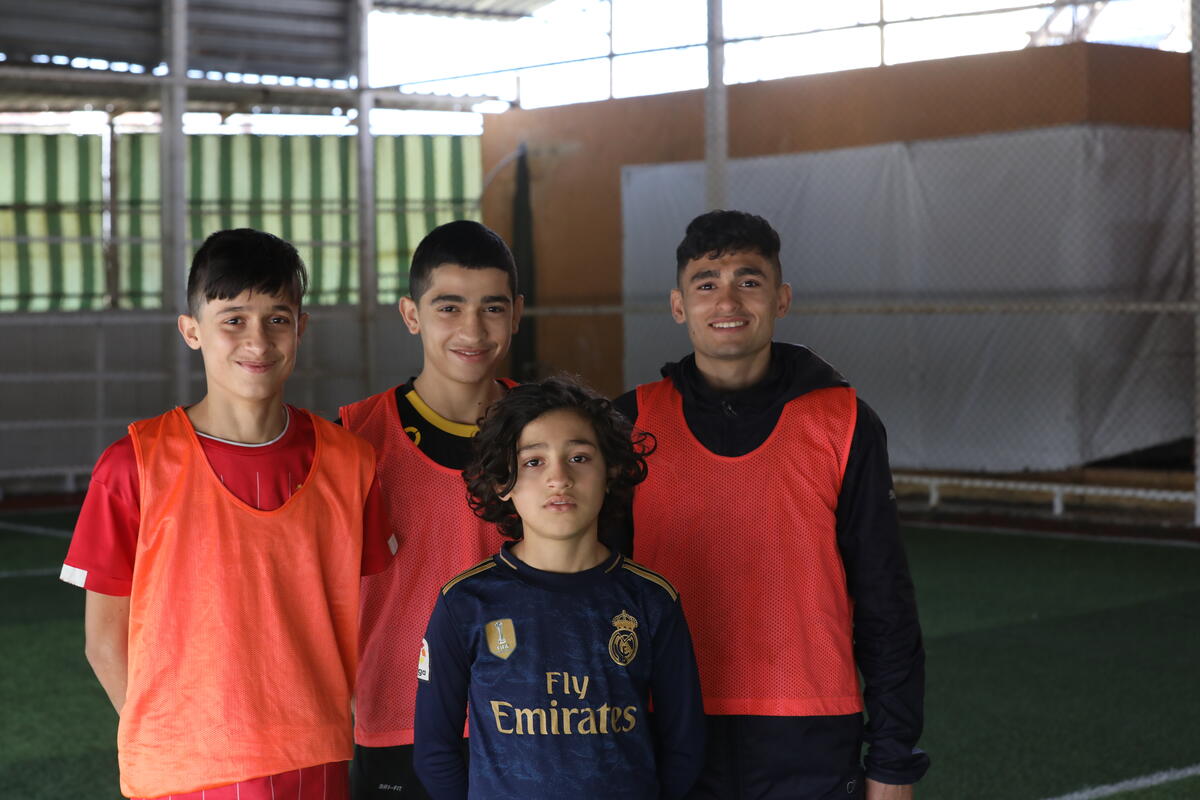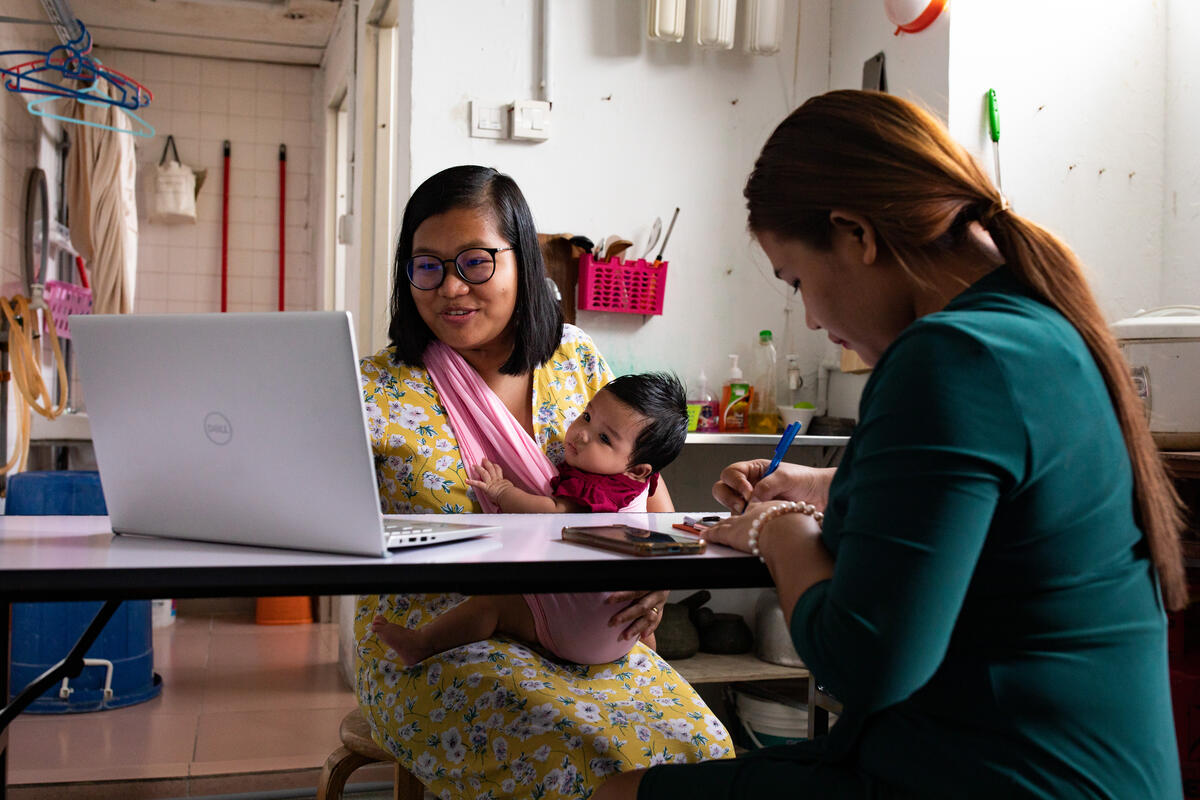Nairobi workshop creates hope for HIV patients in emergencies
Nairobi workshop creates hope for HIV patients in emergencies

NAIROBI, Kenya, September 4 (UNHCR) - When last year's drought made some 12 million people in East Africa dependent on food aid, or when post-election violence drove nearly 700,000 Kenyans from their homes at the end of 2007, the most forgotten victims were people living with HIV.
"In emergencies, people can lose their way of making a living, become malnourished and more susceptible to disease. Desperate women and children can trade sex for food," says Sathya Doraiswamy, UNHCR's senior regional HIV officer.
"At a minimum, when people are forced to flee, they often lose their medical records, don't know where to turn for medical treatment, and authorities may not make testing for HIV, or dispensing life-saving anti-retroviral drugs, a top priority."
To make sure HIV prevention and the needs of people with HIV will be better taken into account in future emergencies, UNAIDS and co-sponsors organized a workshop in the Kenyan capital last week to bring together national authorities and UN experts from five African countries where drought is a recurring problem - Kenya, Ethiopia, Djibouti, Somalia and South Sudan.
UNAIDS is a partnership of UN agencies, including the UN refugee agency, that promotes universal access to HIV prevention, treatment, care and support.
"We are not talking about vague concepts any more," Doraiswamy, one of the organizers, said at the end of the four-day workshop. "It is now much clearer what actions have to be taken to address HIV in emergencies. We are talking about specific solutions."
Recurring drought and flooding are more a certainty than an anomaly in Eastern Africa, the Intergovernmental Authority on Development (IGAD) reported to the workshop, with some areas experiencing regular locust infestations as well.
Against this backdrop, the 45 participants - who included two people living with HIV who survived last year's drought - looked at what had gone wrong and what had been done well in their countries in past emergencies.
Djibouti, for example, has had six consecutive years of drought, with farmers less and less able to grow crops. As farmers and pastoralists lost all or nearly all their animals, huge numbers of people flocked to the cities, where they frequently suffer malnutrition and other illnesses.
Some women needing money to survive turned to prostitution and some people living with HIV didn't know where to get treatment after they moved.
To tackle these problems, Djibouti built more health centres, sent mobile teams to remote areas, distributed thousands of condoms, and set up voluntary counselling and testing centres at truck stops to reach truck drivers who frequently had sex with commercial sex workers along their routes.
"As a result of this workshop, people living with HIV are definitely more likely to get their treatment in emergencies in the future, thanks to the commitment and leadership from these country delegations." said Doraiswamy. "Lives are definitely going to be saved in these five countries."
By Kitty McKinsey in Nairobi, Kenya








